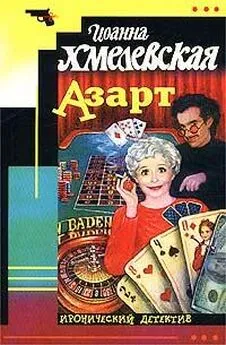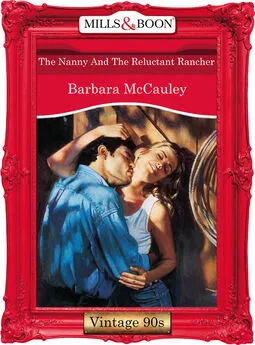Barbara Hambly - Dead water
- Название:Dead water
- Автор:
- Жанр:
- Издательство:неизвестно
- Год:неизвестен
- ISBN:нет данных
- Рейтинг:
- Избранное:Добавить в избранное
-
Отзывы:
-
Ваша оценка:
Barbara Hambly - Dead water краткое содержание
Dead water - читать онлайн бесплатно полную версию (весь текст целиком)
Интервал:
Закладка:
“Régine,” he said, his voice carrying softly in the darkness, “I beg your pardon. I lost my temper, and spoke to you as I shouldn't have. I was only trying to help a young girl under my protection. I was afraid, and angry. I need to speak to you. I need your help. Please speak to me and I swear my oath I'll tell no one you are here.”
Go ahead and tell the world I'm here, piano-player, if you think it'll do you any good. No one will find me.
Thu had to know she was here by this time, even if he had not on that first day when he'd called out, Who's there? January could swear—almost—that Thu had been near the hatch above when he had glimpsed the movement of skirts in the shadow. The steward had always impressed January as a sharply intelligent young man, but intelligence didn't mean a man wouldn't be cowed by a voodoo.
January's own luck since Queen Régine had spit in his face had certainly not been anything to boast about.
And there were other ways of buying Thucydides's assistance than superstitious awe. Voodooiennes were artists in secrets and information, buying, selling, trading knowledge and the power that knowledge gave. The presence of Thu's brother in chains on the vessel qualified as a lever whichever way you looked at it.
And, voodooiennes were never above paying top price for what they needed, whether that was protection, information, or hands to do work in places where they themselves could not go.
Good God, he wondered suddenly, did Queen Régine invest her money in the Bank of Louisiana as well? Did she get on the boat, not in pursuit of me, but in pursuit of Weems?
She'd been in a position to see everything that went on, over the past week. Could Thucydides be working for her, or at least supplying her with information . . . ?
In which case he, January, wasn't safe anywhere on the boat.
“Your Majesty,” he whispered desperately, “please . . .”
But watching silence was his only reply. A moment later Hannibal's musical whistle sounded in the passway above: Oh hide me in the rock, O Lord, O Lord . . . .
Since there was no way of knowing whether the approaching company was black or white, someone who could be talked around or someone potentially genuinely dangerous, January backed hastily out the door and closed it behind him, and crouched, waiting, in the dark of the narrow stairwell. “My dear Gleet,” said Hannibal's voice from the passway, with just enough trace of drunken slur to it to convince January that his friend was as sober as a judge—or as sober as Hannibal ever got. “Just the man I've been looking for.”
“Damn shame,” groused Gleet heavily. “Damn shame, to hang a well-set-up boy like yours. Complete waste . . .”
“Particularly,” said Hannibal, “since Ben actually was asleep in my stateroom the whole time and never laid a finger on Weems.”
“Oh, of course, of course!” Gleet hastened to agree. “But a white man, you know . . . I'm afraid once the sheriff gets hold of it, there'll be no way around hanging him. Do you really work for the Bank of Louisiana?”
“In a manner of speaking,” said Hannibal. January snapped the padlock shut, and stole up the steps like a shadow just as Hannibal maneuvered Gleet out of the passway and onto the promenade beyond. “But in nothing like the capacity our friend Mr. Molloy seems to quite sincerely believe. You and Cain were out that night, two or three times—you heard nothing? Saw nothing?”
As January looked around the corner, Gleet shook his head, and spat a long stream of tobacco juice onto the deck, so close that it fouled Cissy's skirt. If looks could maim, there would have been blood on the deck as well as tobacco juice, but the nursemaid said nothing, and Gleet either didn't see her glare or didn't care.
“Like I told the Colonel, it was quiet as tombs. Even the niggers were quiet—seems like the fog hushed 'em down. Lookin' for ghostses an' ha'nts,' I expect.” Gleet laughed with jovial contempt at anyone who would believe in a spirit world. “I looked over the wenches first, then the bucks, and Cain walked along with me, civil for once—touchy bastard.” He laughed again, an obnoxious haw-haw. “Maybe he thinks there's ghostses an' ha'nts in the dark, too.”
From behind the corner January watched the burly slave-dealer put a brotherly arm around Hannibal's shoulders. “What'd he offer for your boy?”
Hannibal shook his head sadly. “Not a thing—not a red cent.”
January expelled his indrawn breath and whispered a prayer of thanks that Hannibal had decided on the truth rather than a fabrication, which, though it might open new avenues for information, might also be checked.
“Cheap bastard,” Hannibal added as if the thought had just occurred to him. “Stuck-up, too.”
Gleet nodded, and spat again. Cissy and Rose moved the boxes on which they sat back away from the smudge-pot, into the soft, gnat-filled gloom closer to the silent paddle.
“Gets his niggers to mind him, though,” Gleet told Hannibal. “They's so scared of him, if he told the lot of 'em to turn somersaults on the deck, they'd do it. Look at him like whip dogs, even that stuck-up boy 'Rodus—who I told him'll make him trouble, just see if I'm not right. And it is a stupid name, like I said. People don't want to buy a boy named Herodotus. Give 'em a boy name of Jim or Joe or Pete. . . . That boy Pete I got, you know what his name originally was?”
“Then you don't think Cain was staying close to you last night because he was worried about his own gang attacking him?”
“Attack him how?” demanded the dealer sharply. “They's chained to the wall, just long enough so's they can piss over the side. If any of 'em was so stupid as to take a swing at him, like tryin' to get the key away from him, all he'd have to do was sing out and get half a dozen deck-hands from the engine-room.” He shrugged, anger in his movement. January wondered if Gleet guessed Hannibal's real meaning. Not, Was Cain afraid of being thrown overboard by his own gang on so black a night, but, Was it physically possible for them to have thrown Weems over the side?
The last thing either Gleet or Cain would welcome, he reflected, was an accusation against any member of either of their gangs . . . which would automatically lose them over a thousand dollars, if the sheriff in Mayersville decided that that was what had happened. Far better to push off the blame onto someone else's slave.
“Though now you speak of it,” Gleet went on thoughtfully, “he might have been twitchy about somethin' at that. Cain, I mean. When I started around to see the bucks after we fed up the wenches, he did scamper some to catch me up, and most times he don't have the time of day to give me.”
“Does it sound to you,” asked January after Gleet had gone into the galley for the pail of rice and beans that would be dished out to the men of his coffle, “as if Cain was the one who expected to be attacked last night, and not Weems?”
“You could look at it that way,” agreed Rose, settling her box again beside the smudge. “Provided you can come up with some way Weems—or anyone on the boat for that matter—could have taken on Cain and done any damage. The night was pitch black and foggy, but it would need a blind man to mistake Weems for Cain.”
“Cain go armed with a pistol in his boot and a knife in his belt,” provided Cissy, washing her hands with a bandanna dampened in the rain-barrel after her hasty meal. “Even when he go in to dinner, he got a knuckle-duster in his pocket, Mr. Tredgold says.”
They fell silent as Gleet came out of the galley, and walked down the promenade checking his property for the night. On the other side of the boat, the women's voices rose in a gentle crooning, a lullaby over the stillness of the water and the muffled grunts and curses from the boiler-room.
The women weren't worried. The men were.
Because they'd seen Julie slip over the side there last night?
Or because they'd seen something else?
“One more thing,” he asked Cissy. “You spend most of the day in the Ladies' Parlor looking after those br—those charming Tredgold children. You must hear every piece of gossip on the boat.”
She grinned. “Don't I just.”
“What can you tell me about Jack Quince? Other than that he's out to reform the world.”
Cissy laughed indulgently as at a child. “Lord, the way he preaches . . . and don't those ladies in the Parlor eat it up, though? One day it's how nobody should eat meat 'cause it pollutes the blood—let him grow up gettin' nuthin' but pulses an' corn, an' see how pure his blood gets!—an' another it's about how many circles an' levels Heaven has, like he been there. Last night he sat in the corner of the Saloon tellin' the ladies about how nobody was dancin' right—since the reels an' waltzes Mr. Sefton was playin' weren't how the Ancient Greeks would have done it—an' just this evenin', when I left the children up in the Parlor to come down here for dinner, he was on about how all the troubles in the United States just now date from movin' the capital to Washington City instead of leavin' it in Philadelphia, where it belongs.”
“From Philadelphia, is he?” asked January.
“Lord, yes. You ever hear a man say ‘ah' for ‘o' like that who wasn't? He clerks for a firm that brokers sugar, cotton, an' tobacco in Cincinnati, makes two-three trips a year on the river, which is how he knows Mr. Tredgold—Mrs. Tredgold can't get enough of him. Myself, pretty as he is, I'd think a lot more of him if he did somethin' about slavery besides just goin' around sayin' how bad it is. I already know that.”
An innocuous and well-known personage, then, thought January, following the nurse as she climbed the stairs in a rustle of petticoats to resume her position at the bedside of her wretched little charges. The door of the Saloon stood open, throwing light out into the humid darkness. Someone—Thu, probably—went into the Ladies' Parlor and lit a single oil-lamp there, anticipating that even had Hannibal not been in disgrace with the rest of the passengers, there would be no after-supper dancing.
Rifle on his arm, Mr. Roberson walked along the upper promenade, peering at the matte-black cut-out of the shore. Looking up at the hurricane deck above, January glimpsed a black shape that had to be Lockhart, silhouetted against the stars.
Quince came from Philadelphia.
Co-incidence?
January shook his head. A lot of people presumably came from Philadelphia, and because that city was one of the business centers of the United States, it wasn't odd that they'd find their way to New Orleans.
Still . . .
Molloy's voice bawled an order, on the bow-deck by the sound of it. He was on watch till midnight, and probably longer, since the Silver Moon would be getting under way again at about that time. Just as well, thought January. The last thing they needed was for Molloy to glimpse Miss Skippen making her way along to Hannibal's room.
I have important news to impart.
A trick? An excuse to get into Hannibal's room so she could throw herself into his all-too-susceptible arms?
Some variation of the badger game?
Voices floated down after him as he descended again to the galley. The ladies emerged from the Saloon, chatting softly as one and then another disappeared into the ladies' toilet: “Dearest, would you like a little company in your stateroom?” trumpeted Mrs. Tredgold in a voice that she probably thought was gentle and confidential. “I can come sit with you—I have some of the finest China green tea, much better than the horrid stuff they use in the galley—I've told Tredgold and told him. . . .”
Читать дальшеИнтервал:
Закладка:








